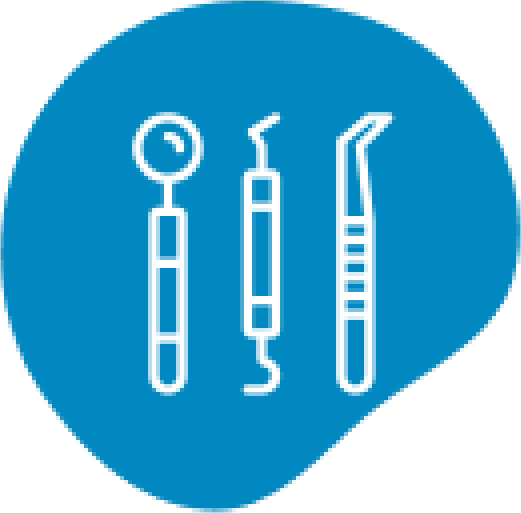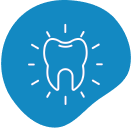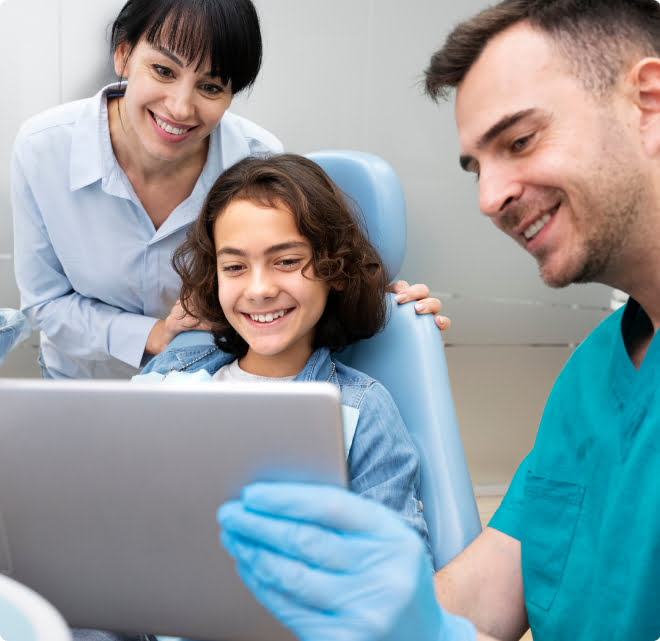x-ray
[rank_math_breadcrumb]
Dental X-ray Brisbane: Cutting-Edge Imaging for Accurate Diagnoses and Personalised Treatment
Dental X-rays at our Brisbane clinic play a pivotal role in gaining insights into your oral health. Whether you visit our clinic for a routine checkup or an advanced treatment, you can expect our team to utilise dental X-ray technology and dental imaging to provide accurate and comprehensive assessments. We initiate this process to comprehensively understand your dental condition, ensuring that no aspect of your oral health goes unnoticed.
This advanced dental imaging technology allows us to uncover issues that may not be visible to the naked eye, such as cavities between teeth, hidden infections, bone density changes, and the positioning of wisdom teeth. By obtaining detailed and precise images through Dental X-rays at our Woolloongabba clinic in Brisbane, we can make informed and accurate diagnoses, ensuring that your treatment plan is tailored to your dental needs.
Join us for a Smile Makeover Consultation at Implant Art
The Need for Dental X-Rays in Brisbane
We recommend dental X-rays and dental imaging when you come to our Woolloonhabba clinic in Brisbane for

Initial Assessment:
During your first visit, we may conduct dental X-rays or dental imaging to establish your oral health baseline. This helps us identify any existing issues and track changes over time.

Routine Check-ups:
Regular dental X-rays are essential for monitoring your oral health and identifying potential problems early on. These X-rays aid in detecting cavities, gum disease, and other dental issues that may not be visible during a visual examination.

Emergencies:
In case of dental emergencies or sudden pain, X-rays can provide swift and accurate insights into the underlying cause, assisting us in determining the best course of action.

Treatment Planning:
For more complex treatments like orthodontics, dental implants, or root canal therapy, X-rays provide valuable information to plan and execute these procedures effectively.

Monitoring Progress:
After specific treatments, such as fillings or extractions, follow-up X-rays help us monitor your healing progress and ensure successful outcomes.
Frequently Asked Questions
Dentists use dental X-rays for various diagnostic purposes, including detecting cavities, assessing tooth alignment, checking bone health, monitoring growth and development, diagnosing gum disease, planning treatments, identifying hidden issues like abscesses, cysts, and tumours, and monitoring healing after procedures.
There are several types of dental X-rays, including bitewing X-rays, periapical X-rays, panoramic X-rays, and occlusal X-rays. Each type serves a specific purpose in evaluating different aspects of oral health.
Avoiding dental X-rays altogether is not recommended. While it’s natural to have concerns about radiation exposure, dental X-rays are considered safe and are essential for accurate diagnoses and effective treatment planning. Modern X-ray equipment uses low radiation levels, and dentists take necessary precautions to minimise exposure. The benefits of dental X-rays in detecting issues early and maintaining your oral health far outweigh the minimal risks associated with radiation.
The frequency of dental X-rays varies based on individual factors such as age, dental history, and oral health status. Generally, adults may need X-rays every 1 to 2 years for routine check-ups. Children and adolescents may require more frequent X-rays due to ongoing dental development. Dentists tailor the frequency of X-rays to each patient’s needs, ensuring that the benefits of diagnostic information outweigh any potential risks.
Taking an X-ray at our clinic is a comfortable and straightforward process. Our experienced team ensures that you are positioned comfortably, and that the procedure is performed efficiently. Dental X-rays are non-invasive and generally involve minimal discomfort. Our priority is to make your experience as pleasant as possible while obtaining the necessary diagnostic information to ensure oral health.
Getting an X-ray in Brisbane at our clinic is easy and convenient. Schedule an appointment with us for a routine check-up or if you have concerns about your oral health. Our experienced dental professionals will guide you through the X-ray process during your visit.
The cost of an OPG (Orthopantomogram) X-ray in Australia can vary depending on location, the dental clinic you visit, and whether you have dental insurance. It’s recommended to check with your specific dental clinic or provider to get accurate pricing information. Additionally, if you have dental insurance, your coverage may reduce the out-of-pocket cost of the X-ray.
Dental X-rays are worth it as they provide valuable diagnostic information crucial for maintaining oral health. X-rays allow dentists to detect issues such as cavities, gum disease, impacted teeth, and more that may not be visible during a visual examination. Early detection through X-rays can lead to timely treatment, preventing the progression of dental problems and saving you from more complex and costly treatments in the future.
The number of X-rays needed for a dental exam varies based on age, dental history, and specific concerns. A set of bitewing X-rays, which show the upper and lower back teeth, is typically taken during a routine dental exam. This set usually includes two to four X-rays. Additionally, a panoramic X-ray, which provides a comprehensive view of your entire mouth and jaw, may be taken every few years or as needed for a more comprehensive assessment. The frequency and types of X-rays can vary, and your dentist will recommend the appropriate X-rays based on your needs to ensure a thorough dental examination.
3D dental X-rays, or Cone Beam Computed Tomography (CBCT) scans, are necessary in specific situations requiring detailed and three-dimensional imaging. While traditional 2D X-rays are effective for many dental assessments, 3D X-rays are particularly valuable for complex cases, precise treatment planning, assessing bone density, and more.
Dental X-rays emit very low radiation levels, and with modern equipment and proper shielding, the risk is negligible. However, to ensure your safety, your dentist will use a lead apron to protect your abdomen area during the X-ray. Dental X-rays are typically postponed to the second trimester if not urgent.
The duration of a dental X-ray procedure varies, but most X-rays take only a few minutes. Bitewing or periapical X-rays usually take about 5-10 minutes, while panoramic X-rays might take around 10-15 minutes. More complex 3D scans, like CBCT scans, can take 20-40 minutes.

Contact Us for a Thorough Dental Examination
Ready for a thorough dental examination and dental x-ray in Woolloongabba? Contact Brisbane Dental Clinic today to schedule your appointment and prioritise your oral health.!

